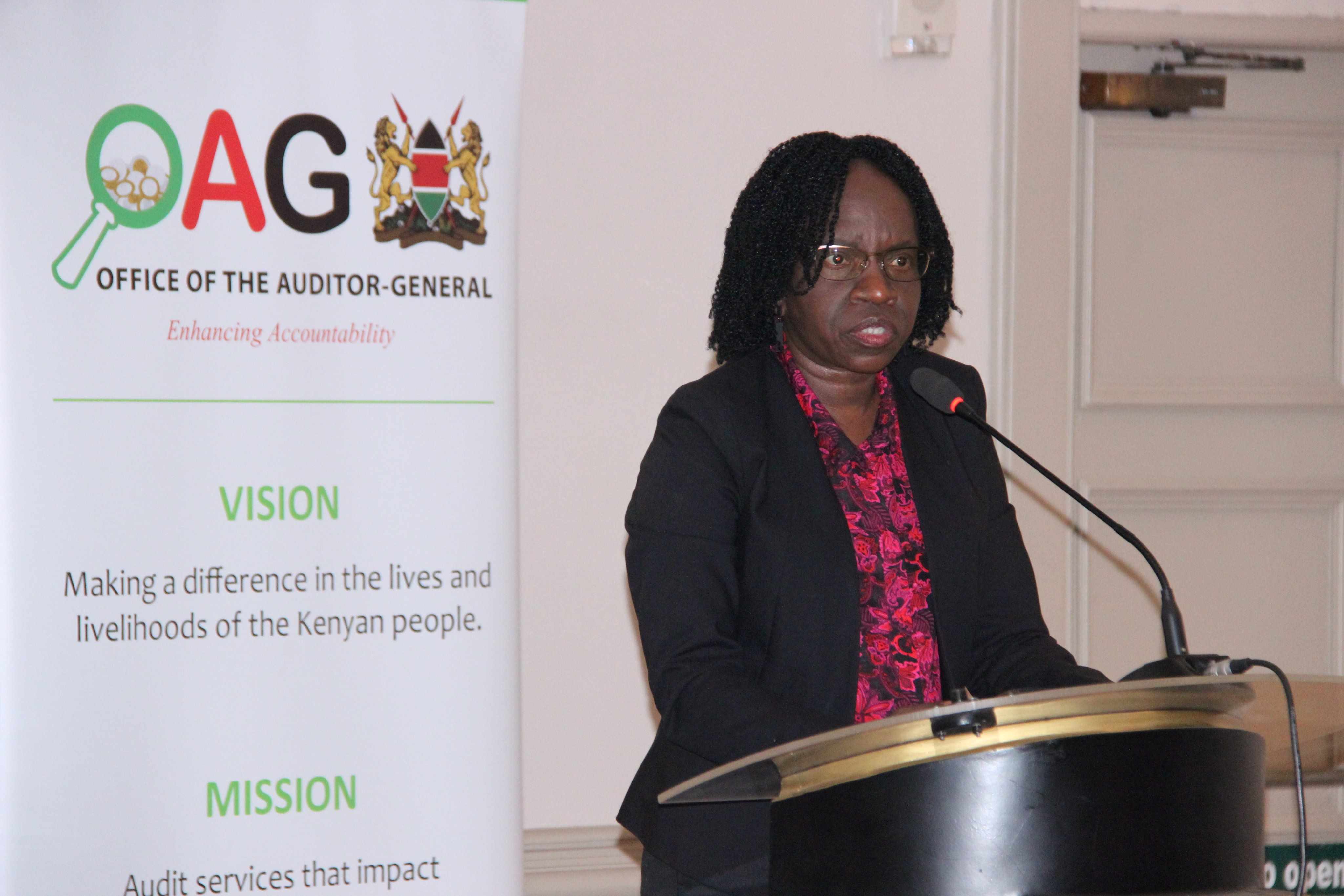Taxpayers risk losing millions due to pension payment irregularities, audit reveals

In the last Financial Year 2023-2024, payments amounting to Sh350 million were made to 2,950 deceased pensioners.
A recent audit has raised concerns about the management of pension payments at the National Treasury, suggesting that taxpayers may be losing hundreds of millions of shillings due to irregularities.
The audit report from Auditor General Nancy Gathungu has revealed that in the last Financial Year 2023-2024, payments amounting to Sh350 million were made to 2,950 deceased pensioners.
More To Read
- Auditor-General's report reveals Sh6bn wasted on substandard projects in schools
- Defence, Interior ministries exposed over failure to give emergency spending details
- Kenya Railways faces Sh3.5 billion penalty for defaulting on China’s SGR loan
- National Treasury faces scrutiny over Sh161 billion debt repayment anomalies
It remains unclear how long these payments have been occurring and how much longer the trend might continue.
In addition to payments made to deceased individuals, the report highlighted that 30 dead pensioners continued to receive disability allowances amounting to Sh5.7 million.
The scope of the issue expands further, with auditors finding that Sh7.3 billion was disbursed to pensioners and dependants with questionable identification details.
The audit pointed out that the system's records were incomplete and inaccurate regarding essential information like tax PINs, ID numbers, and birth dates.
"Incomplete or inaccurate data may lead to errors and fraud in pension processing and administrative inefficiencies, hence financial loss arising from irregular payments," Gathungu says in the report.
The lack of proper data management raises alarms about the overall integrity of the pension system.
Probe payments
The Auditor General urged the Treasury to investigate these questionable payments and recover any lost public funds.
In June 2023, there were 9,205 pensioners whose tax PINs were either missing or invalid.
Additionally, approximately 36,000 pensioners had invalid ID numbers, which complicates the verification of their eligibility for pension payments.
Further analysis revealed troubling discrepancies, such as 31 pensioners having the same date of birth as their enrollment date and 2,469 deceased principal pensioners recorded simply as "DUMMY."
The auditors found that 31 pensioners exhibited integrity issues with both ID and tax PIN details, alongside mismatches in names and employment histories.
"The National Treasury should ensure all money irregularly paid to pensioners and dependants is recovered," Gathungu stated, emphasizing the need for collaboration with investigative agencies to address these issues effectively.
This audit reveals a system plagued by inaccuracies and inefficiencies, leading to potential misuse of taxpayer funds.
Pension payments account for the largest share of state expenditure. During the year under review, taxpayers spent Sh32.8 billion on 15,969 active pensioners.
The Treasury management had previously explained that delays in reporting deaths by beneficiaries contributed to the ongoing payments to deceased individuals.
However, the auditor dismissed this explanation, noting that management did not provide any memorandum of understanding with financial institutions for recovering overpayments.
Lacking records
The audit also uncovered that the Pension Management Information System (PMIS) lacks adequate records of user activities, which could hinder efforts to identify unauthorised transactions.
"This control deficiency can lead to management being unable to establish perpetrators of unauthorized activities," Gathungu noted.
The absence of a reliable audit trail could allow unscrupulous officers to exploit the system, leading to further financial losses.
Moreover, the PMIS was not configured to generate standard reports, complicating the tracking of payments and potentially allowing for double payments.
It was discovered that some dependants received allowances while their corresponding pensioners remained on the main payroll, indicating a failure in the system's design to prevent such occurrences.
The audit revealed that 22 pensioners received over Sh428,000 during the year despite lacking any recorded disability claims in the system.
Such findings underline the need for strict data input validation controls to ensure that information entered into the system matches the expected criteria.
Overall, the Auditor General's report indicates a critical need for improvements in how the National Treasury manages pension payments.
"Failure to enforce accountability for the activities compromises the security of the system and can hamper problem resolution in case chronology of events is required during investigations of system malfunction or fraudulent activities," Gathungu noted.
As taxpayers continue to bear the financial burden of these irregular payments, the National Treasury faces increasing pressure to rectify these issues and safeguard public funds.
Top Stories Today


















